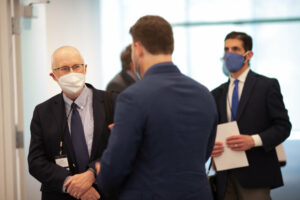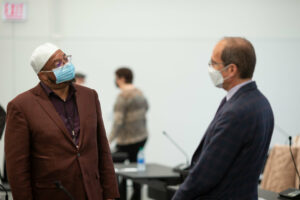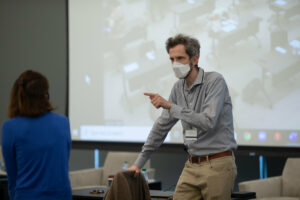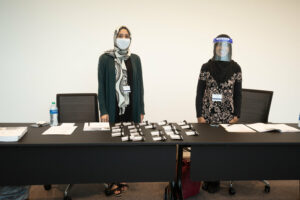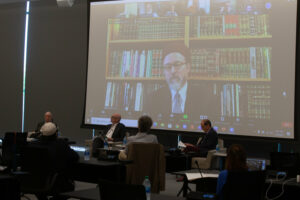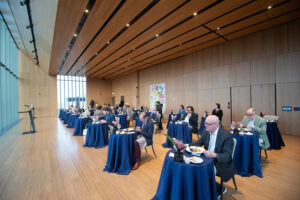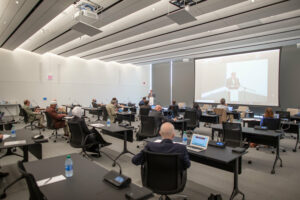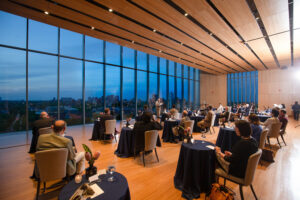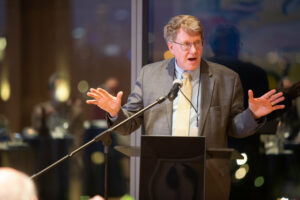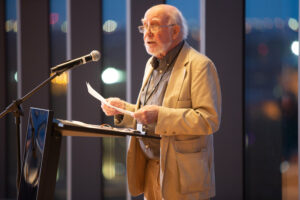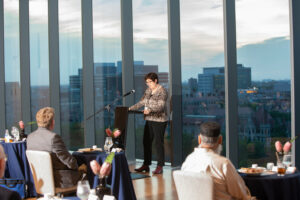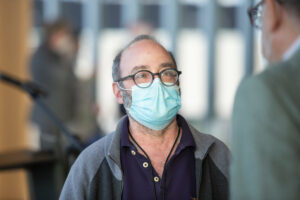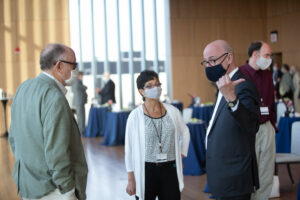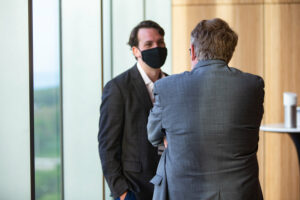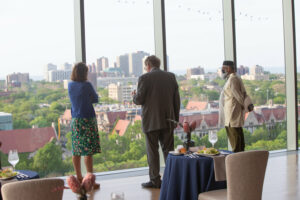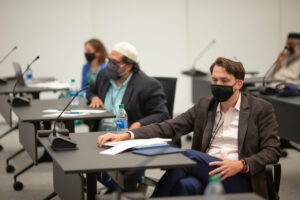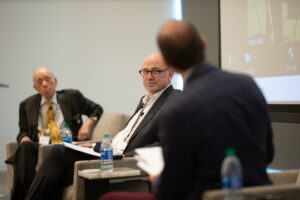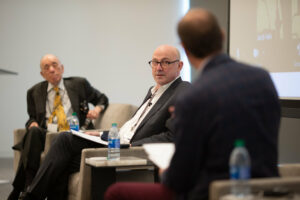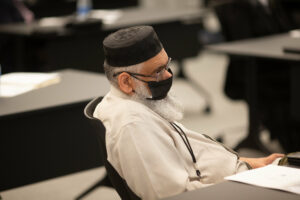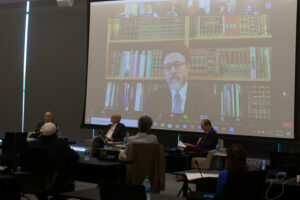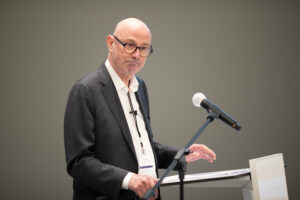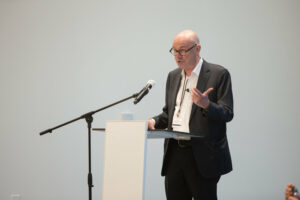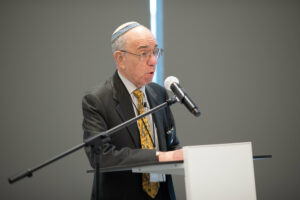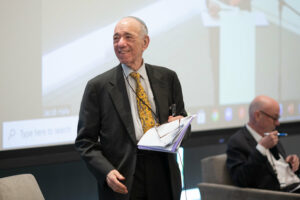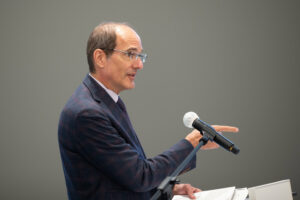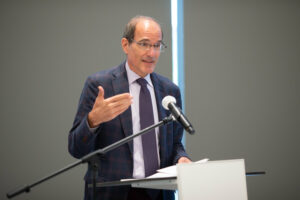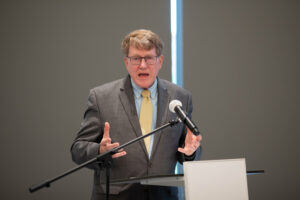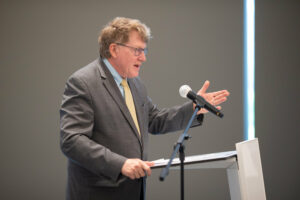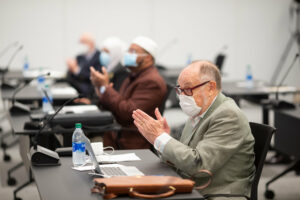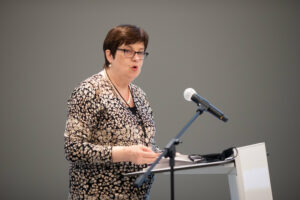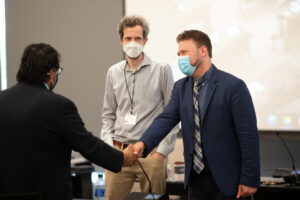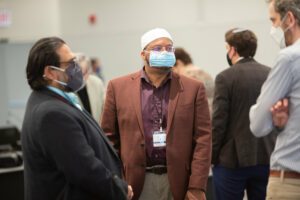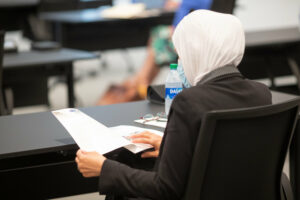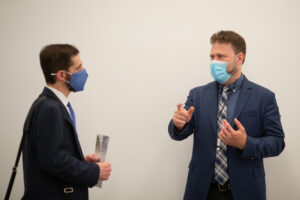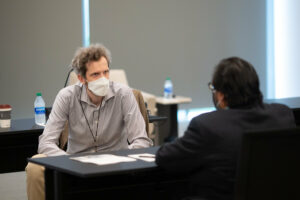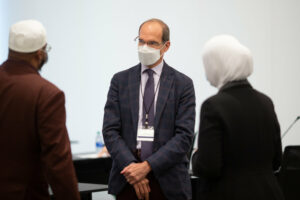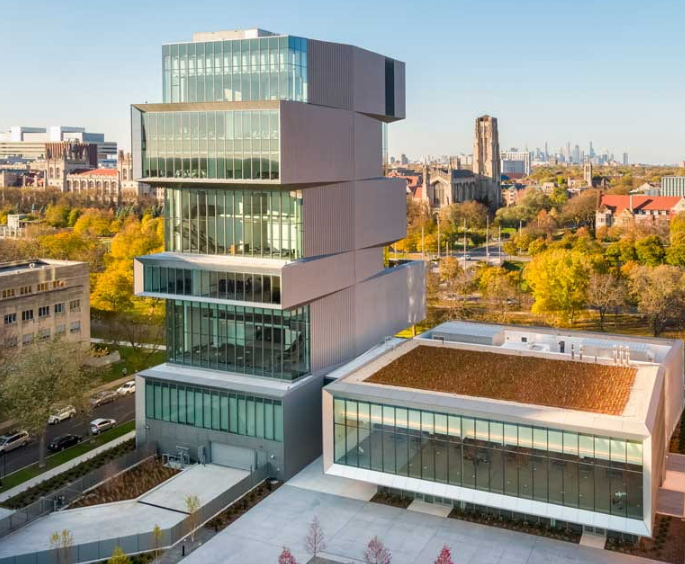
SYMPOSIUM: What Happened to Virtue, the Common Good, and Pluralism? Teachings from Judaism, Christianity, and Islam
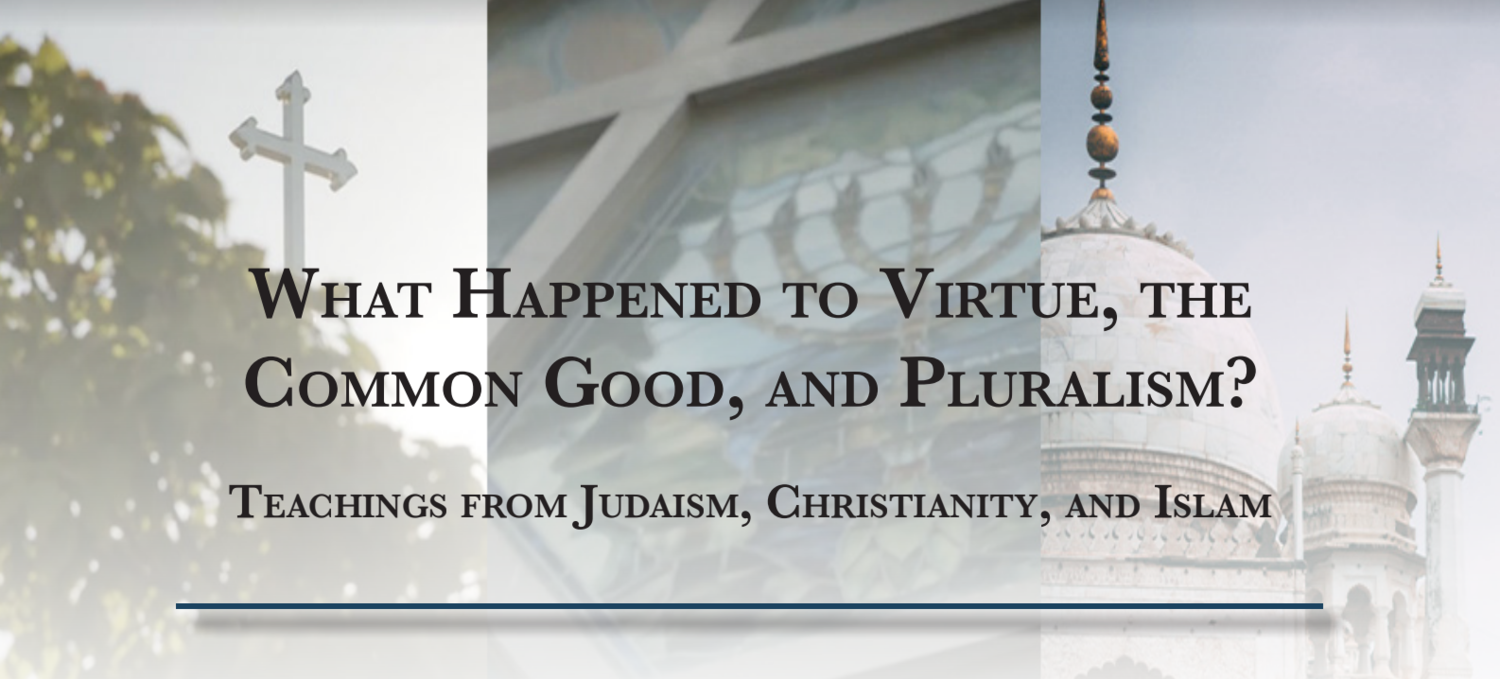 To what extent do Judaism, Christianity, and Islam have a shared way of determining truth, and a shared vision of virtue and the common good? Does that shared vision have the potential to help restore faith in the American social and political order in this deeply polarized time?
To what extent do Judaism, Christianity, and Islam have a shared way of determining truth, and a shared vision of virtue and the common good? Does that shared vision have the potential to help restore faith in the American social and political order in this deeply polarized time?
This symposium explored these vital questions and is part of a broader project that aims to revive the understanding of virtues central to Judaism, Christianity, and Islam—virtues upon which important visions of peaceful pluralism and ideas of the common good have often been founded. Leading scholars from each faith tradition explore key virtues they hold in common, including: wisdom (prudence), justice, courage, temperance, friendship, humility, and generosity.
Photos from the Conference
Co-Sponsors

Co-Chairs
Kent R. Hill, Senior Fellow for Eurasia, the Middle East, and Islam; Religious Freedom Institute
Willemien Otten, Director, Martin Marty Center
David Nirenberg, Dean, University of Chicago Divinity School
The Virtues Project
The Virtues Project explores ways that classical traditions of virtue, rooted in the transcendent, might serve as a potent antidote to the plummeting consensus in America on what it means to pursue the common good. Without ignoring or trivializing theological differences between Jews, Christians, and Muslims, the project seeks to foster a shared sense of purpose among scholars, faith leaders, and the broader public to restore an understanding of, and commitment to, the classical virtues that these monotheistic traditions have discovered and professed through the ages. Such a shared grounding can play a positive role in reestablishing a belief that as a society, we can overcome our differences and jointly pursue the common good.
Our symposium at the University of Chicago, and the scholarship that emerges from it, will form the cornerstone of a multi-year effort to re-introduce the virtues to American culture. This effort will include an academic work with chapters authored by our participating scholars, curricula for school children, adult training materials, digital learning resources, and much more.
Featured Scholars
Dr. Khalil Abdur-Rashid is the Chair of the Board of Religious, Spiritual, and Ethical Life at Harvard and the University Muslim Chaplain at Harvard University. Read full bio.
Dr. Yonatan Brafman is assistant professor of Jewish Thought and Ethics and the director of the M.A. Program in Jewish Ethics at the Jewish Theological Seminary of America. Read full bio.
Yousef Casewit is an Assistant Professor of Qurʾānic Studies at the University of Chicago Divinity School. Read full bio.
Geoffrey D. Claussen is Lori and Eric Sklut Scholar in Jewish Studies, Associate Professor of Religious Studies, and Chair of the Department of Religious Studies at Elon University. Read full bio.
Carl Sharif El-Tobgui (Ph.D., Islamic Studies, McGill University) currently serves as Associate Professor Arabic & Islamic Studies and Director of the Arabic Language Program at Brandeis University (Waltham, MA) and previously taught for five years at Harvard University as Preceptor of Arabic. Read full bio.
Lenn Goodman is Professor of Philosophy and Andrew W. Mellon Professor in the Humanities at Vanderbilt University. Read full bio.
John von Heyking is Professor of Political Science at the University of Lethbridge (Canada), where he teaches political philosophy. Read full bio.
F. Russell Hittinger is Professor Emeritus of Catholic Studies at the University of Tulsa, and the Senior Fellow at the Lumen Christi Institute at Chicago. Read full bio.
Dr. Atif Khalil teaches mainly in the field of classical Islamic thought, with primary research in Sufism and secondary interests in Islamic philosophy and theology, comparative mysticism, interfaith relations, Jewish-Muslim relations, medieval philosophy, non-duality, and more recently, mysticism and the Near Death Experience. Read full bio.
Mohammed Amin Kholwadia is founder and director of Darul Qasim, an institute of higher Islamic learning in Glendale Heights, Illinois. Read full bio.
Angela McKay Knobel, Ph.D. in Philosophy, is an Associate Professor of Philosophy at the University of Dallas. Read full bio.
Matthew Levering holds the James N. and Mary D. Perry Jr. Chair of Theology at Mundelein Seminary, where he also directs the Center for Scriptural Exegesis, Philosophy, and Doctrine. Read full bio.
Bernard McGinn is an American Roman Catholic theologian, religious historian, and scholar of spirituality. A specialist in Medieval mysticism, McGinn is widely regarded as the preeminent scholar of mysticism in the Western Christian tradition. Read full bio.
Alan Mittleman is the Aaron Rabinowitz and Simon Rifkind Chair in Jewish Philosophy at the Jewish Theological Seminary in Manhattan. Read full bio.
Melissa Moschella is Associate Professor of Philosophy at the Catholic University of America, and a Visiting Scholar at the Heritage Foundation’s B.K. Simon Center for American Studies. Read full bio.
Walead Mosaad is an internationally recognized scholar in Islamic studies and human development. Read full bio.
David Novak is the J. Richard and Dorothy Shiff Professor of Jewish Studies and Philosophy in the University of Toronto since 1997. Read full bio.
Jawad Anwar Qureshi is assistant professor of Islamic Theology and Philosophy at Zaytuna College in Berkeley, CA. Read full bio.
James Robinson focuses his research on medieval Jewish intellectual history, philosophy, and biblical exegesis in the Islamic world and Christian Europe. Read full bio.
William Schweiker works in the field of theological ethics. His scholarship and teaching engage theological and ethical questions attentive to global dynamics, comparative religious ethics, history of ethics, and hermeneutical philosophy. Read full bio.
Kenneth Seeskin is Emeritus Professor of Philosophy and Emeritus Philip M. and Ethel Klutznick Professor of Jewish Civilization at Northwestern University. Read full bio.
David Shatz is the Ronald P. Stanton University Professor of Philosophy, Ethics, and Religious Thought at Yeshiva University. Read full bio.
Candace Vogler is the David B. and Clara E. Stern Professor of Philosophy and Professor in the College at the University of Chicago, and Principal Investigator on “Virtue, Happiness, and the Meaning of Life,” a project funded by the John Templeton Foundation. Read full bio.
David Walsh is Professor of Politics at the Catholic University of America with teaching and research interests in the field of political theory broadly conceived. Read full bio.
Hamza Yusuf Hanson currently serves as president of Zaytuna College in Berkeley, California, the first accredited Muslim liberal arts college in the United States, with both bachelor’s and master’s degree programs. Read full bio.
David Nirenberg is an American historian, Dean of the Divinity School, and Deborah R. and Edgar D. Jannotta Distinguished Service Professor of Medieval History and the Committee on Social Thought at the University of Chicago. Read full bio.
Kent Hill, a co-founder of the Religious Freedom Institute (RFI) and its first Executive Director, now serves as RFI’s Senior Fellow for Eurasia, Middle East, and Islam. Read full bio.
Willemien Otten studies the history of Christianity and Christian thought with a focus on the medieval and the early Christian intellectual tradition, especially in the West, and an emphasis on the continuity of Platonic themes. Read full bio.
Ismail Royer serves as Director of the Islam and Religious Freedom Action Team for the Religious Freedom Institute. Since converting to Islam in 1992, he has studied religious sciences with traditional Islamic scholars, and spent over a decade working at non-profit Islamic organizations. Read full bio.

